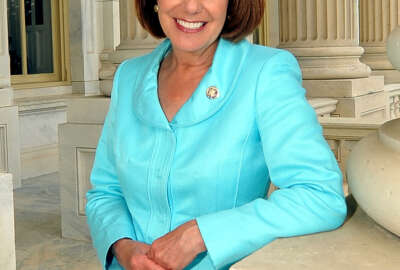
Senate panel keeps military pay raise at 1.6 percent, reforms TRICARE
A Senate panel's version of the 2017 defense authorization bill keeps the military pay raise at 1.6 percent, but expands some health care options.
The House and the Senate may have to do some compromising in the near future over funding for military pay increases in 2017.
The Senate Armed Services Personnel Subcommittee is funding military pay raises next year to the President’s request of 1.6 percent.
That’s in contrast to the House Armed Services Committee’s 2.1 percent increase in its version of the 2017 defense authorization bill.
During a May 10 markup, the Senate personnel subcommittee unanimously passed its section of the 2017 bill.
The pay raise provision will now go to the full Senate Armed Services Committee during its markup on May 11.
The 1.6 percent pay raise is not set in stone, however. There are still numerous opportunities for the amount to change before the bill makes the journey all the way to the President’s desk.
The full committee could add an amendment to raise the pay increase, as could the full Senate. The pay raise could also be augmented during a conference between the two legislative bodies after they have each passed the bill.
Military personnel advocates are pushing for the House version of the pay raise, which is tied to the Employment Cost Index, a measurement of private-sector wage increases.
A 2.1 percent increase would be the largest raise for service members in at least three years.
“The past three years the pay raise has been lower than the Employment Cost Index (ECI) … in the military it’s spelled out in law that their pay raises would not drop below ECI,” said Kelly Hruska, government relations director for the National Military Family Association. “Service members include this in their family budgeting.”
Hruska said new retirement pay-in requirements and rising TRICARE costs have dipped into service members’ pockets, slimming down the paycheck they see every month.
Not everyone on the House side is on board with the 2.1 percent increase. Rep. Susan Davis (D-Calif.), House Armed Service Personnel Subcommittee ranking member, is worried about where the money will come from.
“I am concerned that by increasing [pay] above the requested amount we are taking funds away from other critical priorities including readiness,” Davis said during the April 20 Military Personnel subcommittee markup. “This additional half percent pay raise will provide an E-4 with an additional $11 a month, but that will cost a total of $330 million, which must be taken out of somewhere else in the budget.”
Health care reform
Though the Senate subcommittee did not choose to make any changes to military pay, it did make some reforms to the military health care system.
“This is the most comprehensive look at military health care I’ve ever been involved in,” said Senate Armed Services Personnel Subcommittee Chairman Lindsey Graham (R-S.C.). “We are trying to make it better. There are people that are going to push back because change is hard to accept, but the goal of change was to bring about efficiency over cost for the beneficiary.”
Graham said if Congress doesn’t reform military health care, in about 20 years 18 percent of the defense budget will be military health care related.
“That’s an unsustainable path. We are trying to create sustainability, higher quality, better access and quite frankly expand the services,” Graham said.
The bill authorizes a $400 million increase in the defense health program budget for military health system reform and another $40 million increase to maintain provider reimbursement rates for TRICARE beneficiaries.
The bill expands access choices and gives beneficiaries more options for getting healthcare.
It also authorizes a pilot program that gives commercial health care coverage to reserve components and their families.
“This is something I’m really excited about, it’s an alternative to the current TRICARE system for Guard and Reserve families who live in remote areas,” Graham said.
The committee did not divulge how it was going to pay for the increased services.
The House version of the bill imposes enrollment fees and co-pays on military family members of troops who join the military in 2018 and beyond.
The House version also requires annual enrollment fees for retirees’ family members.
Copyright © 2024 Federal News Network. All rights reserved. This website is not intended for users located within the European Economic Area.
Scott Maucione is a defense reporter for Federal News Network and reports on human capital, workforce and the Defense Department at-large.
Follow @smaucioneWFED




